The content of the article
Normally, during conception, the spermatozoon enters the vagina, then through the cervix into the uterus. Then fertilization occurs in the fallopian tubes - the sperm cell merges with the egg cell. A zygote is formed - a unicellular embryo, that is, the first stage of human development. A fertilized egg goes down the tubes into the uterus and begins to develop there.
But if for some reason the zygote does not enter the uterus, but gets stuck at one of the stages of the path, the fetus begins to grow in the wrong place and an ectopic pregnancy is diagnosed. In 98% of cases, an ectopic pregnancy develops in the tubes, however, a fertilized egg in rare cases may be located in the ovaries or abdomen.
Ectopic pregnancy is dangerous enough. After all, the embryo develops with rapid speed and can simply break the tube with its growth, which leads to severe internal bleeding. This can lead to irreversible consequences. Therefore, it is very important to determine the presence of ectopic pregnancy in the early stages. On this depends the future reproduction of a woman and even her life. But first we will try to figure out what can lead to such a pathology.
Causes of ectopic pregnancy
- Chronic inflammatory or infectious problems of gynecological nature. Infectious diseases of the reproductive system often lead to disruption of the fallopian tubes - they are not sufficiently reduced to push a fertilized egg into the uterus. Because of this, the egg simply can not pass at its destination and is fixed where it is stuck. If a woman suffers from inflammation of the uterus and appendages, adhesions, scars and narrowing can form in the tubes, which prevent the normal passage of the egg.
- Surgical intervention is another factor that can cause an ectopic pregnancy.This is due to the fact that after surgery, the abdominal organs can be changed, which can interfere with the normal course of a healthy pregnancy.
- Congenital pathology of the pipe. Some women have a congenital pathology of the pipes, the pipes can be very long, narrow, tortuous or completely impassable. This makes it difficult for the egg to pass through the pipes.
- Tumors. Regardless of whether the tumor is benign or malignant, it can interfere with the passage of the egg through the tube, simply by pinching it.
- Hormonal disruptions. Frequent and uncontrolled use of hormonal contraceptives (especially for intrauterine devices) leads to disruption of the woman’s normal hormonal levels. As a consequence, the mobility of the tubes decreases, the tube can not push the egg into the uterus.
- Weak sperm. Sometimes it happens that a sperm cell that has fertilized an egg is weak enough, and the zygote is simply unable to move through the tubes.
Very often, an ectopic pregnancy develops after invasion into the body in the past - after induced abortion.
How to determine ectopic pregnancy by the first signs
Symptoms of ectopic pregnancy in general differ little from the first signs of a healthy pregnancy. A woman also begins to experience toxemia, she has a delay in menstruation, the test shows two bars. A woman feels a frequent urination to urinate, her chest is poured and her basal temperature rises. But how to distinguish a healthy pregnancy from ectopic on the first signs? Here are a few symptoms that are characteristic of the course of an ectopic pregnancy.
- Scanty blood discharge of a smearing character. Often they are brownish in color. After rupture of the tube, internal and uterine bleeding may occur.
- Pain. This is the main symptom of body problems. The pain can be cutting and piercing, aching and sharp. Often the pain is localized on one side of the lower abdomen, namely in the tube where the egg cell is located. In case of abdominal bleeding, the pain may give to the anus. Also, pain may occur during urination or bowel movements. The pain is worse or worse when you move or change your body position.
- Due to the large loss of blood in women comes anaphylactic shock. She feels apathy, drowsiness, can lose consciousness. In addition, her skin turns pale, pressure drops, pulse slows, her head is constantly spinning.
- Abnormal pregnancy can be indirectly determined by a pregnancy test. Everyone knows that the test responds to the level of human chorionic gonadotropin. The level of the hormone hCG normally increases with the development of pregnancy very quickly. And if in the early stages the second strip on the test was weak and transparent (low level of hCG), then the next day the second strip will be much clearer. And with ectopic pregnancy, the level of hCG remains small over time, so the pregnancy test shows a transparent and fuzzy strip even the next day.
- There are special tests that not only respond to the level of the hormone hCG, but also on the basis of other hormonal changes are able to show the risk of developing ectopic pregnancy and the risk of threatening miscarriage. Everything is based on immunochromatographic analysis.
How to diagnose an ectopic pregnancy
If you suspect an ectopic pregnancy, you should immediately consult a doctor. After all, the time detected pregnancy can save the pipe from rupture. To ensure the presence or absence of an ectopic pregnancy, the doctor may prescribe the hormone hCG tests.
- Hormone hCG. As mentioned above, the hormone hCG normally increases several times every two days. If the indicators of this hormone do not grow or grow slightly - this is one of the most serious indicators of the presence of ectopic pregnancy.
- Ultrasound. Already at 6-7 weeks the fertilized egg can be seen on the ultrasound machine. With the help of an ultrasound the doctor determines the location of the ovum. If no seals are found in the uterus, the specialist expands the search area and during ectopic pregnancy finds an accumulation of free water in one of the tubes. If even the egg cell itself is not visible, the tube in ectopic pregnancy is expanded. But sometimes a specialist can take a blood clot for the fertilized egg in the uterus, especially in the early stages of pregnancy, 4-5 weeks. In this case, laparoscopy is necessary for a more accurate result.
- Laparoscopy - This is a modern and accurate way to diagnose and treat abdominal organs. Laparoscopy is a procedure in which a tiny incision is made in the abdominal cavity of a patient, in which the thinnest tube is inserted with a lens at one end. On the other hand, there is an eyepiece through which one can observe a picture of the insides of the patient. If instead of the lens at the end of the tube there is a mini-video camera, then the image is projected on the screen. Laparoscopy is considered an accurate way to diagnose also because internal organs can be viewed from all angles by shifting and shifting them. This procedure is accurate and reliable in identifying an ectopic pregnancy.
- Puncture. This method is rather old-fashioned due to its pain and uncertainty. Its principle is as follows. Through the anus, a woman is injected with a needle into the uterine cavity. From there, the liquid is taken for analysis. If blood is detected in the composition of the fluid, this indicates the presence of an ectopic pregnancy in the woman's body. However, this diagnostic method is not 100% reliable, and it is also very unpleasant and painful.Therefore, today it is practically not used.
How to remove ectopic pregnancy
Diagnosis confirmed the presence of an ectopic pregnancy in a woman's body. What's next? And then you need a laparoscopic surgery to remove the ovum from the tube. Ectopic pregnancy never passes without cleaning. If possible, doctors try to save the integrity of the tube, but if it is completely broken, it is removed along with the fetal body.
- If the gestational egg is located near the entrance to the tube, make Milking - squeeze the egg without damaging the tube.
- If extrusion is not possible, salpingotomy is performed. In the place where the fertilized egg is located, the tube is cut, the egg is removed, and the incision is stitched. If the embryo is large enough, it is removed along with part of the tube. The functional ability of the pipe is then preserved - a woman can become pregnant.
- In cases of rupture of the tube, tubectomy is performed - removal of the fallopian tubes together with the fetal egg. If there is a risk to the patient's life, the tube can be removed along with the ovary.
- If an ectopic pregnancy is determined in the early stages, chemotherapy is possible. Women are given special medications (for example, Methotrexate) that drastically inhibit the development of the fetus. The drug is used up to 6 weeks of fetal development, as long as it does not have cardiac activity. However, Methotrexate is a rather crude medicine that has many side effects - from kidney and liver damage to complete hair loss. This type of treatment is almost never used in Russia. This type of treatment is possible only for women who no longer plan to become mothers.
After surgery, it is very important to undergo a course of rehabilitation treatment, which will prevent adhesions and cicatrices on the tubes. After all, any obstacles in the tubes in the future can be another cause of ectopic pregnancy. After removal of an ectopic pregnancy for at least six months, it is impossible to plan the conception of a child.
If a woman has suffered from an ectopic pregnancy, this does not mean that she will not be able to become a mother. After all, every woman has two fallopian tubes, and if in the worst case one tube was removed, the second one remains, quite reproductive.Most women who survived an ectopic pregnancy subsequently were able to give birth to healthy children. And only 6-8% remain infertile after ectopic pregnancy.
Ectopic pregnancy is not a sentence. Conception and childbearing is a long and complicated process, during which anything can happen. Ectopic pregnancy occurs only in 2% of cases of the total number of all pregnancies. And if this happened to you, do not despair. Timely diagnosis and proper treatment will restore your body. And then you will be able to turn this difficult page of your life and live on, becoming a mother more than once!
Video: ectopic pregnancy - signs, symptoms and advice from doctors



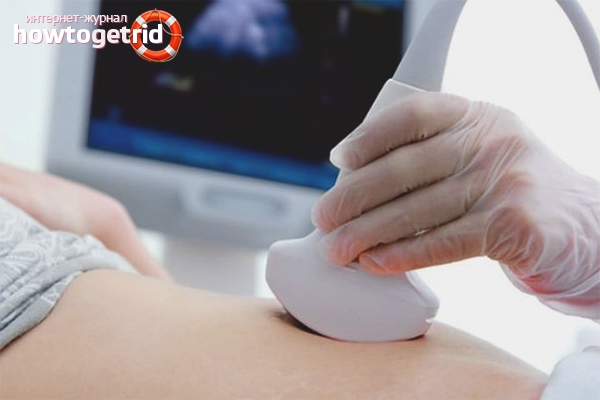



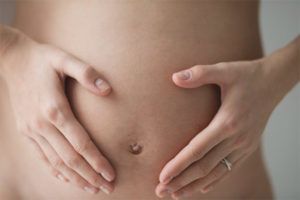

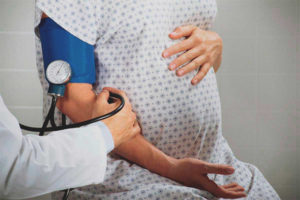
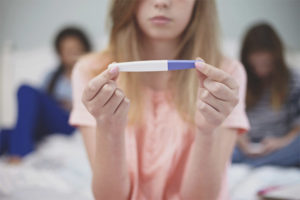
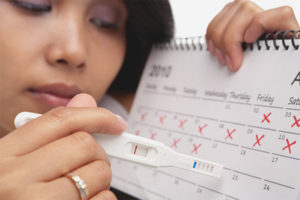

To send